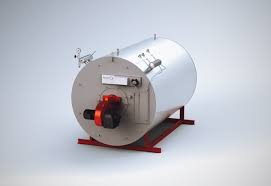
12월 . 01, 2024 15:32 Back to list
steam boiler descaling chemical
Descaling Chemicals for Steam Boilers Importance and Application
Steam boilers are vital components in various industries, providing essential steam for heating, power generation, and process applications. However, over time, scale buildup in these boilers can lead to significant operational problems, including reduced efficiency, increased fuel consumption, and even severe damage to the boiler. To combat these issues, the use of descaling chemicals has become an essential practice. This article discusses the importance of descaling chemicals for steam boilers, their application, and best practices for effective scaling prevention.
Understanding Scale Formation
Scale formation is a natural process that occurs when dissolved minerals in water precipitate out and adhere to the surfaces within a steam boiler. The primary culprits are calcium and magnesium, which, when heated, form calcium carbonate and magnesium hydroxide. This scale can severely inhibit heat transfer, leading to overheating and potential failure of boiler components.
The quality of the feed water, along with operational conditions, plays a crucial role in determining the extent of scaling. Water with high hardness levels, low pH, and elevated temperatures are more prone to scaling, making it imperative to monitor and treat boiler feed water appropriately.
The Role of Descaling Chemicals
Descaling chemicals are specially formulated products designed to dissolve and remove the scale buildup inside steam boilers, restoring their efficiency and prolonging their lifespan. These chemicals work by breaking down the chemical bonds of the scale, enabling it to be flushed away with the boiler water.
Common descaling agents include acids like hydrochloric acid, citric acid, phosphoric acid, and sulfamic acid. While acids are effective, they must be used with caution to avoid damaging the boiler's metal components. Non-acidic descaling agents, such as chelating agents and alkaline cleaners, are also available and can be effective in specific scenarios without the corrosive risks associated with acids.
Application of Descaling Chemicals
The application of descaling chemicals typically involves several steps
1. Preparation Before applying the descaling agent, it is crucial to shut down the boiler and allow it to cool. Proper safety gear should be worn, and the area should be well-ventilated.
steam boiler descaling chemical

2. Dilution Most descaling chemicals need to be diluted with water according to the manufacturer’s specifications. This step is vital to ensure the effectiveness and safety of the chemical.
3. Application The descaling solution can be introduced into the boiler, either through a circulation method or by filling the boiler with the solution and allowing it to soak for a designated period. The recommended soaking time can vary based on the severity of the scale and the type of chemical used.
4. Flushing After the soaking period, the boiler should be thoroughly flushed with water to remove any dissolved scale and residual chemicals. This step is critical to prevent damage to the boiler and ensure optimal performance after descaling.
5. Inspection and Maintenance Regular inspections should be conducted post-descaling to monitor for any new scale formation. Implementing a routine maintenance schedule can help mitigate scaling risks and improve the longevity of the boiler.
Best Practices for Scaling Prevention
While descaling chemicals play a vital role in managing scale buildup, preventive measures can significantly reduce the need for frequent descaling. Some best practices include
- Regular Water Treatment Implementing a comprehensive water treatment program to soften feedwater can drastically minimize scale formation. - Monitoring Water Quality Regular testing of feedwater for hardness, pH, and total dissolved solids (TDS) can help identify potential scaling issues before they escalate.
- Operational Controls Maintaining optimal operating temperatures and pressures can also help minimize scale. Avoiding superheating and fluctuating loads can contribute to better steam quality.
- Training Personnel Ensuring staff are adequately trained in water management and boiler maintenance can aid in early detection and intervention regarding scaling issues.
Conclusion
The use of descaling chemicals is a critical aspect of maintaining steam boilers' efficiency and longevity. By understanding the causes of scale formation and employing effective descaling methods alongside preventive maintenance practices, operators can safeguard against the operational inefficiencies that scaling presents. Adopting a proactive approach to boiler maintenance not only improves performance but ultimately leads to cost savings and enhanced safety in industrial operations.
-
Best Steam Boiler Design PDF Free Design Calculation & Diagram Downloads
NewsJun.10,2025
-
Hot Boiler Water Heater Efficient Heating Solutions for Home & Commercial Use
NewsJun.10,2025
-
Steam Boiler Safety Devices High-Quality Protection Valves
NewsJun.10,2025
-
Ultimate Steam Boiler Checklist for Safety & Efficiency
NewsJun.10,2025
-
Optimal Hot Water Boiler Temperature Setting Guide
NewsJun.10,2025
-
Effective Hot Water Boiler Chemical Treatment Protect & Maintain
NewsJun.09,2025
Related PRODUCTS






















